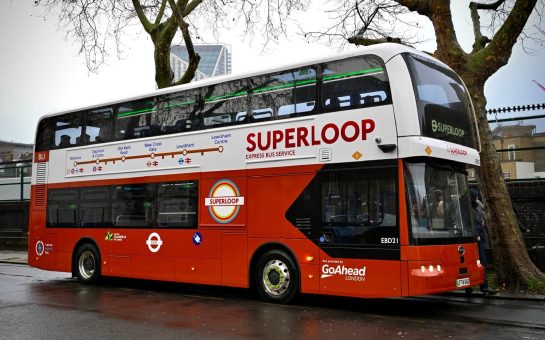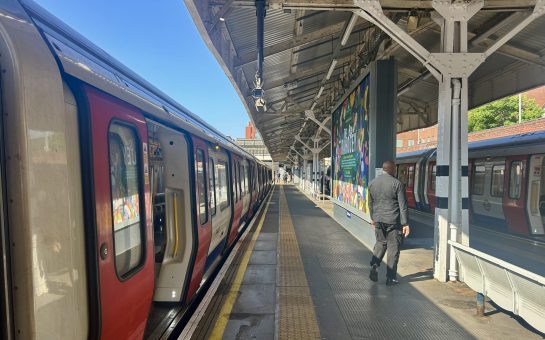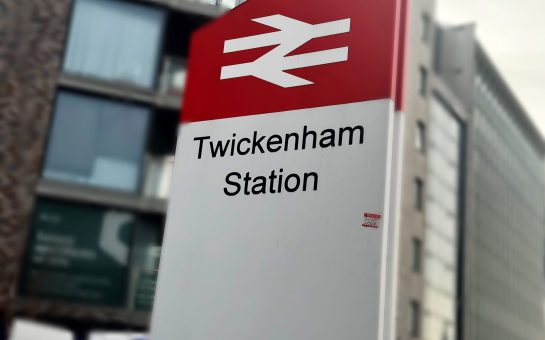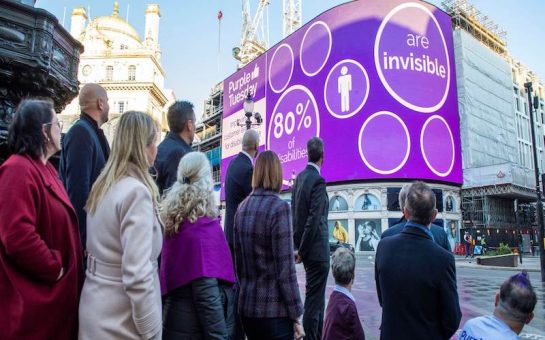For many people with disabilities, travelling by train is complicated and exhausting because more than half of London stations are not accessible, a new study shows.
Research by disability charity Leonard Cheshire highlighted the importance of having the right to get to work and visit friends and family freely, but that the lack of step-free access at train stations is barring disabled people from travelling independently.
Wheelchair user, Greta Bent, 61, from Peckham said: “I’m frightened – I don’t go out much because I worry no one will be able to help me when I get to the station or if I’ll get stuck.
“I just want to be able to travel easily and not feel like I’m being denied something that people take for granted every day.”
Hannah, who uses a wheelchair, said: “I have made quite a few journeys by train in the last couple of years and have found that it takes meticulous planning to organise each trip.
“I’m lucky that my local station is accessible, but that is not always the case at my destination.
“The lack of consistent step-free access at stations across the country makes journeys at best, a logistical challenge, and at worst, impossible to achieve.”
Neil Heslop, chief executive of Leonard Cheshire, said: “Inaccessible public transport is forcing disabled people to miss out on every day events which others take for granted – from employment opportunities to social events.
“Disabled people cannot continue to put their lives on hold.”
Ceri Smith, policy and campaigns manager at disability equality charity Scope, said: “It’s crucial we also challenge negativity from other passengers and staff and a great start would be extensive training on disability for rail staff.”
Alongside problems with physical accessibility, a quarter of disabled people told Scope that other people’s attitudes prevented them from using public transport.
Deaf and autistic 22-year-old, Wilfred, was ignored and told to get on the train immediately, after he tried to explain to staff that he had booked disabled assistance.
Wilfred’s mum, Charlotte, explained: “Because he’s deaf, he uses his phone to type out what he’s trying to say if people don’t understand him, and when he reached the station, his phone ran out of battery so he tried to speak with someone who worked there but the man rudely said ‘get on the train’ not understanding that he needed assistance.
“Because of this, when my son reached his destination, no one came to find him on the train – he had to leave by himself. This is unacceptable.
“When I rang to complain, the lady said ‘oh I don’t suppose he looks disabled’ – I was so shocked that I didn’t answer her.”

Charlotte admitted that the ‘please offer me a seat’ badge has helped Wilfred but that there was an urgent need for improved staff training in learning to recognise both physical and hidden disabilities.
Charlotte described another situation where a passenger assaulted her son on the train exposing the fierce realities of some people’s attitudes towards disabilities.
Charlotte said: “We got on the train and my son was excited because we were going to the theatre. Sometimes he doesn’t realise how loud he’s being because of his deafness and this man sitting opposite us kicked my son and said ‘Oi, you be quiet’.
“He made my son cry and quite frankly I feel more awareness is needed so that my son can travel without feeling like he may be targeted because of something that can’t be helped.”
Transport for London has started offering free ‘travel safe’ training provided by DLR ambassadors for mobility scooter and wheelchair users of the fully accessible DLR.
Lucy Sabia, DLR community ambassador, said: “Being independent is a right and not a luxury for any individual.
“If for any reason an individual is prevented from being independent, be it a physical obstacle or down to lack of confidence, it is our duty to help them.
I feel privileged that my role as a DLR community ambassador allows me to contribute in making a positive impact to people in need.”
Despite these initiatives, many stations still do not cater to millions of people with disabilities.
Robert Nisbet, Regional Director at the Rail Delivery Group, representing the rail industry, said: “We want everyone to be able to benefit from the opportunities travelling by train opens up, including disabled people. As part of our plan to change and improve, we’re working together with disability groups to improve accessibility and we’re investing in projects that will improve our service, including rolling out a new assistance app and installing more lifts and ramps at stations.”
Disability charities are now urging the government and rail operators to prioritise step-free access and ensure all transport is accessible for people with different disabilities by 2030 and to provide better disability training as part of the UK’s Inclusive Transport Strategy.
Disability rights advocates have demanded that those with disabilities be guaranteed the right to travel independently without restriction, fear of prejudice or preventable difficulties.




